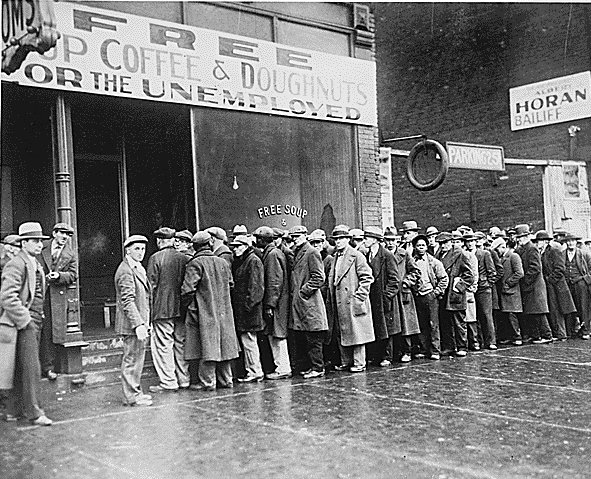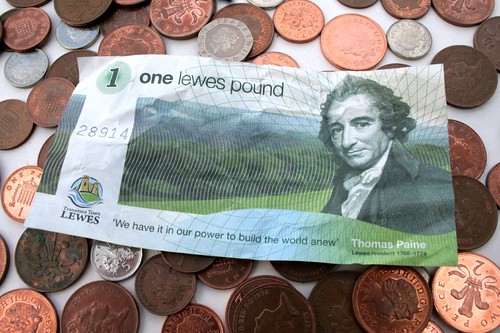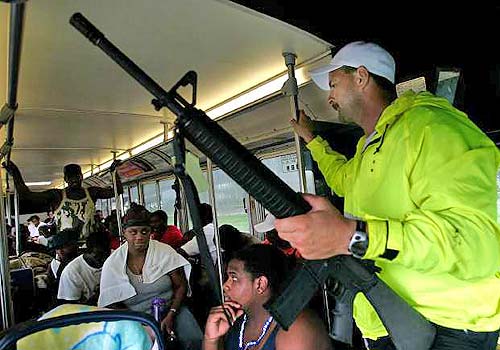46°14?00?N 63°09?00?W Prince Edward Island, Canada.
I’m taking part in a roundtable on community resilience, 4&5GW and the decline of the state. The aim of the roundtable is to bring together individuals from a range of backgrounds to challenge current thinking and assumptions in our present political and societal systems. Two presentations which I’ll be live blogging on will be Chet Richards on Mindsets and Character and John Robb on Community Resilience. There is no set agenda for the conference. This afternoon we will be running a series of open sessions… one of which is likley to be on community resilience.
If you have a question for Chet or John send me a tweet. Update: Thanks for the questions – answers will be tweeted soon.
Update: Notes from John Robbs’ presentation after the jump + MP3 of Chet.
Chet Richards‘ OODA Loop refresher is valuable. Listen here (mp3)
John Robb on Resilient Communities
What we all fear: Soup Kitchens in 2011

- Current financial policies are creating a more complex system – instead of reducing instability they are creating more uncertainty in both the short and medium term. Put simply – we don’t understand the system we are operating in.
- Supersystem: Global market place rests on tightly coupled systems (think: buying food off the shelf in Tesco’s alerts its system to place an order for product in China).
- This global system is weakening and hollowing out the nation state. The nation state’s responsibility for finance, borders, and food security is weakened and in some cases has been lost. The reasons for this is because:
- It’s too big: Even working in concert, nation states will not be able to stabilise the system.
- It’s too complex: There are too many moving parts and too many connections between the parts to grasp the problems. We live on bad assumptions. Example – the whole economics profession were wrong about the global financial system.
- It’s too quick: Governments are incapable of responding to the rapid pace of change. Crises morph over time leaving nation states which aren’t able to synthesis the information and act on it behind the power curve
- Black Swans will happen more often.
- Radical slow down in economic activity has had an effect on lowering oil prices. It is likely we will become complacent and will therefore not diversify.
- Disruption: Most noticeably in the unavailability of goods: As in Iceland as well as black and brown outs in South Africa.
- Superempowerment: Moore’s Law – small groups are riding this curve – (CE note: see Clay Shirky’s book Here Comes Everybody – p215)
Net Result: Catastrophe.
We will see a lot of dead ends. In terms of security we may see a ratcheting up of the police state as people resort to low level criminality slowing the system down.
This requires a new form of resilience:
1. Emergence of a transition culture: See Rob Hopkins work on Transition towns
2. Platforms: The necessity of cooperative structures. Imagine a Bow tie – the left bow are the suppliers, the knot are the core services and the right hand bow are Users. The knot, the platform of the system needs to be fair, connected, and two way. In terms of Resilient Communities the problem is that we have given up the platforms at the community level and are resting on a global system which is becoming too complex to manage and therefore unstable. We need to identify solutions that rebuild local level systems. In terms of community resilience we can think of the following:
Local Power: We are currently in an ‘energy gap’ oil is running out but solar technology is still immature. One approach is to adopt microgrids based on military surety grids:

Local food: As the food crisis last year demonstrated food is rapidly disappearing. People will need to begin to grow their own food. In suburban in the UK for instance, the number of allotments is increasing . Entrepreneurs will begin to buy land from owners to grow their own food and sell it to local markets.
Local money: Money will become increasingly scarce through hoarding. But will local currencies make a come back? Some examples of this in action: Lewes Pound

Local Security: Number of good examples including Hurricane Katrina and The Bridge to Gretna:
When Hurricane Katrina blew through New Orleans three months ago, thousands of people left in the city were trapped with no food, no water and no shelter. They were desperate to escape the devastation. The bridge that spans the Mississippi River from New Orleans to Gretna was one of the few ways out, until police from Gretna used force to stop pedestrians from crossing it.
You read that correctly.The Gretna local police stopped residents of New Orleans escaping over the Bridge and what’s more:
Since most of the police officers were white and most of the evacuees were black, the incident quickly took on racial overtones.




